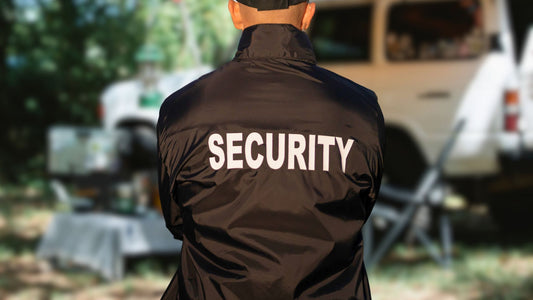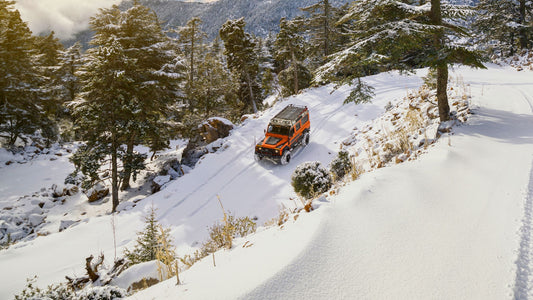Overlanding is becoming increasingly popular among outdoor enthusiasts. Overlanding involves traveling long distances overland in a vehicle, often off-road, and staying in remote locations for an extended period of time. If you're planning an overlanding trip, it's crucial to know the do's and don'ts to ensure a safe and responsible adventure.

Here's a rundown of the most important things to keep in mind.
DO'S OF OVERLANDING
-
Do your research before hitting the road
It's essential to research the areas you'll be traveling to, including local laws, customs, and cultural sensitivities. This will help you avoid any potentially dangerous or uncomfortable situations.
-
Do plan your route in advance
Knowing your route in advance will help you prepare for the journey and avoid any unexpected surprises. Research the terrain, climate, and potential hazards along the way.
-
Do pack appropriately for your trip
Pack gear that is suitable for the environment you'll be in, including weather-appropriate clothing, camping gear, and emergency supplies.
-
Do respect nature and wildlife
Be mindful of the impact you have on the environment and wildlife. Observe wildlife from a distance and avoid disturbing their habitats.
-
Do leave no trace
Leave the area you camp in exactly as you found it. Clean up all your trash and pack out all your waste.
-
Do be self-sufficient and prepared for emergencies
Be prepared for any potential emergencies, including breakdowns, medical issues, and inclement weather.
-
Do have proper permits and permissions for the areas you'll be traveling to
Research the necessary permits and permissions required for your trip, and obtain them before you hit the road.
-
Do have a backup plan
Be prepared for unexpected changes in the itinerary, including weather, road closures, or other unforeseen circumstances.
DON'TS OF OVERLANDING
-
Don't go off-roading in protected areas
Off-roading in protected areas can damage the environment and wildlife habitats. Stick to designated off-road areas, if available.
-
Don't litter or leave garbage behind
Leave the area you camp in cleaner than when you found it. Bring garbage bags and pack out all your trash.
-
Don't disturb wildlife or their habitats
Respect wildlife and their natural habitats. Avoid disturbing them by keeping a safe distance and not leaving any food out.
-
Don't trespass on private property
Always obtain permission before entering private property.
-
Don't drive recklessly or ignore traffic laws
Follow all traffic laws and drive safely, especially on dirt roads and off-road trails.
-
Don't rely solely on technology or GPS
Technology can fail, especially in remote areas. Always bring a map and a compass and know how to use them.
-
Don't underestimate the weather conditions
Check the weather forecast before your trip and be prepared for any extreme weather conditions.
-
Don't forget to check in with loved ones and let them know your plans
Let someone know where you're going and when you expect to be back.
CONCLUSION
Overlanding is an incredible way to explore the great outdoors, but it's important to do so responsibly. Following these dos and don'ts will help you have a safe, enjoyable, and environmentally conscious overlanding experience. By being respectful of nature and wildlife, properly planning and packing for your trip, and adhering to local laws and customs, you can make your overlanding trip a memorable and rewarding experience.




